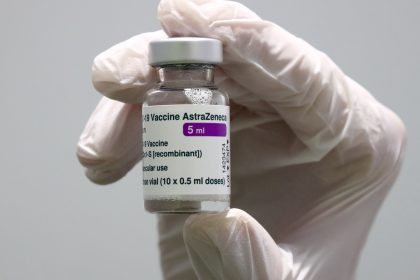Magnesium: The Essential Mineral

WASHINGTON — If you’ve ever struggled with insomnia, a friend may have told you that taking magnesium will help you sleep. Magnesium may play a role in improving sleep, but it’s also key to several other systems in your body. More than half of Americans don’t get enough of it.
Here, we will break down this essential mineral, what it does in your body, how a deficiency can lead to health issues, and easy ways to reach the recommended intake for a better night’s sleep (and more).
What Magnesium Does In Your Body
Magnesium is an essential mineral, meaning your body doesn’t produce it alone, and you can only get it through your diet. It is the fourth most common mineral after calcium, sodium, and potassium and they all work together. Magnesium is stored in your bones, soft tissues and skeletal muscles.
Magnesium is a cofactor in over 300 enzyme systems in your body. You need it to produce energy, synthesize protein, healthy muscle and nerve function, and regulate your blood sugar and blood pressure.
- Heart: Within your heart, magnesium helps transport calcium and potassium, which can affect your heart health and nervous system.
- Bones: Magnesium (along with calcium) is vital to bone health and development — almost 60% of your body’s magnesium is in your bones.
- Energy: Your cells need magnesium to produce energy (or ATP, which is adenosine triphosphate). ATP is your energy source for brief, high-intensity activities like lifting weights, sprinting, or jumping.
- Muscles: Magnesium contributes to healthy muscle contractions. Between energy and muscular contractions, magnesium is a popular supplement for weightlifters.
Magnesium Deficiency
Since magnesium is important to your heart and bones, magnesium deficiency has been linked to a higher risk of cardiovascular diseases and osteoporosis. Due to its role in energy production, low magnesium levels may also make you feel tired.
Up to 60% of Americans have a magnesium deficiency. The recommended daily allowance according to the United States Food and Nutrition Board is as follows:
- Adult Men: 420 milligrams of magnesium per day.
- Adult Women: 320 milligrams of magnesium per day.
The first signs of magnesium deficiency are fatigue, lack of appetite, nausea and muscle weakness. The following signs are numbness and tingling, muscle cramps and irregular heart rhythms. Chronically low magnesium can increase your risk of high blood pressure, type 2 diabetes and osteoporosis.
Some people may be more at risk of having low magnesium due to certain health conditions, including gastrointestinal diseases, type 2 diabetes and alcoholism. Older adults may also have lower magnesium and want to boost their intake.
Why and How to Get More Magnesium
- Potentially Better Sleep: Magnesium may improve sleep in the following ways:
- Magnesium helps produce a neurotransmitter called GABA that calms the nervous system.
- Magnesium helps relax your muscles and may lower the stress hormone cortisol.
- Some studies suggest magnesium is associated with melatonin production, the hormone that helps regulate your sleep cycle.
- Migraine Management: A magnesium deficiency can cause migraine headaches. Some studies suggest that getting more magnesium may help to reduce migraine symptoms.
- Bone Health: Research links high magnesium levels with higher bone mineral density. Magnesium may help keep your bones strong as you age, reducing your risk of fractures.
- Heart Health: Magnesium transports calcium from the heart to keep your arteries clear and healthy and helps regulate blood pressure.
- Exercise Performance: Some research suggests magnesium may help athletes with exercise performance due to its role in energy production and muscle contraction. Other studies show that magnesium may help older adults increase their muscle strength and improve their gait.
To reap these benefits, you can get more magnesium by taking a magnesium supplement (talk to your doctor first) or by simply adding more magnesium-rich foods to your diet.
According to the United States Department of Agriculture, the following foods have the highest magnesium levels:
- Seeds: chia seeds and pumpkin seeds.
- Nuts: almonds, Brazil nuts, cashews, and peanuts (technically a legume).
- Leafy Greens: spinach and Swiss chard.
- Legumes: black beans, edamame beans, and kidney beans.
- Whole Grains: whole wheat bread, brown rice, quinoa.
- Fatty Fish: salmon, halibut, mackerel.
- Dark Chocolate.
The Sleepy Mineral
Magnesium plays several significant roles in your body. It contributes to strong bones, healthy muscles and nerves, energy production and relaxing sleep. Getting more of it by adding magnesium-rich healthy foods to your diet can help you feel well. Always check with your doctor before trying a new supplement.
You can reach us at [email protected] and follow us on Facebook and X (formerly known as Twitter)

























